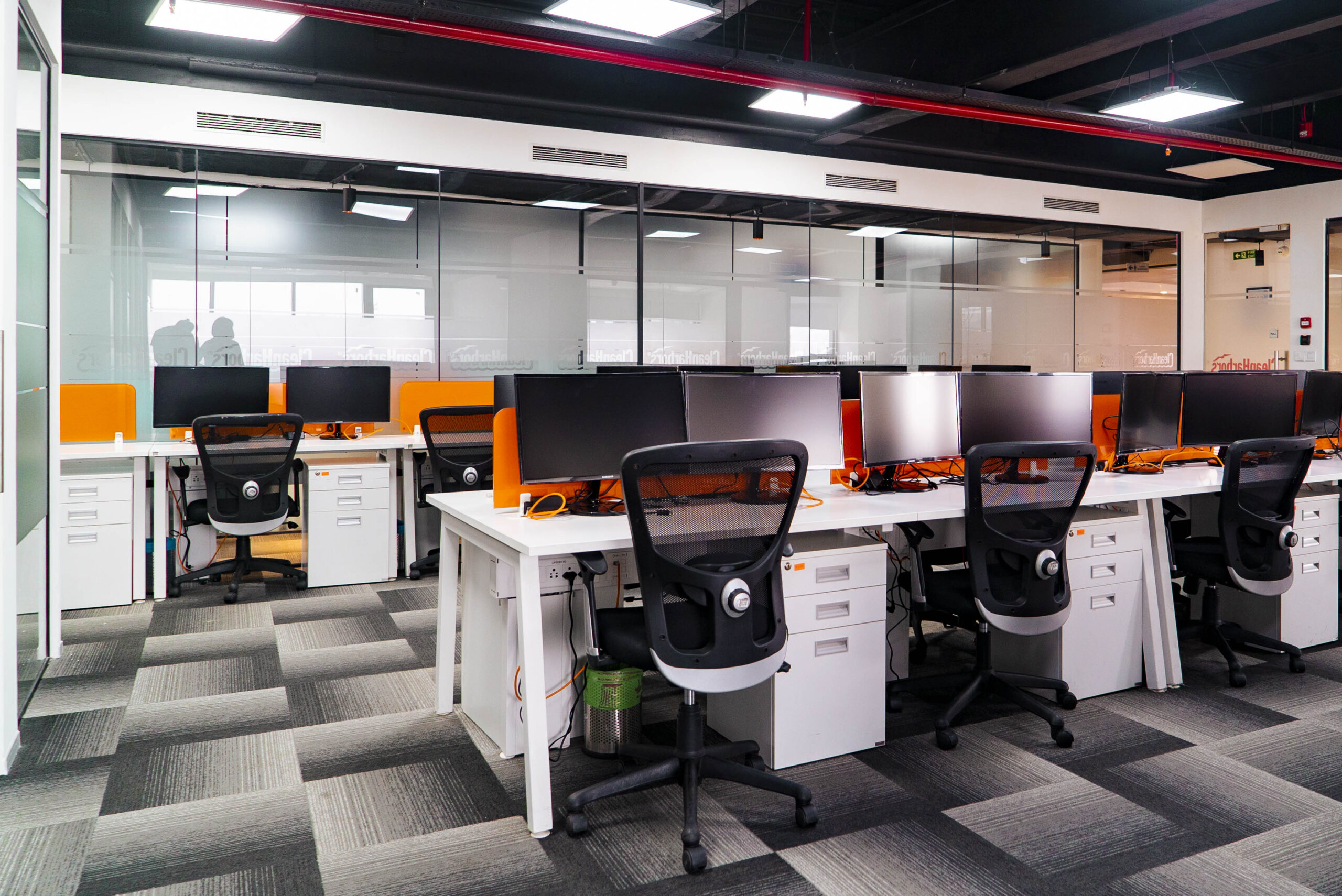
5 Reasons Behind the Rise of Flexible Workspaces in India
In recent years, India has witnessed a paradigm shift in the way people approach work. The traditional 9-to-5 office setup is gradually giving way to a more dynamic and adaptable work environment, marked by the rise of flexible workspaces. This transformation is not merely a trend but a response to the evolving needs and expectations of the workforce.
Considering this shift in the trend, companies are now looking for fully-furnished and tech-enabled office space in Gurgaon, Noida, Delhi, Pune, and other Tier 1 & 2 cities. With flexible workspaces, businesses now have the liberty to scale up and expand their presence in multiple cities with ease.
Moving further in this blog, we will explore five key reasons behind the surge in the popularity of flexible workspaces in India.
1. Changing Work Culture and Work-Life Integration
The first and foremost driver behind the rise of flexible workspaces in India is the changing work culture. As the workforce becomes more diverse in terms of age, preferences, and priorities, the one-size-fits-all approach of traditional offices no longer suffices. Employees, especially the younger generation, are seeking a better integration of work and personal life. Flexible workspaces offer the freedom to choose when and where to work, enabling individuals to strike a balance between professional and personal commitments.
The conventional idea of spending eight hours a day in a fixed office space is increasingly seen as outdated. Flexible workspaces, with their open layouts, comfortable amenities, and collaborative environments, provide an alternative that aligns more closely with the contemporary lifestyle. This cultural shift towards a more fluid and integrated approach to work has fuelled the demand for flexible workspaces across India.
2. Rise of Freelancing and Gig Economy
The gig economy and freelancing have experienced unprecedented growth in India, with a significant number of professionals choosing flexible and independent work over traditional employment. Freelancers, consultants, and entrepreneurs are finding flexible workspaces to be the ideal solution for their varied needs. These spaces offer not only a physical workspace but also a supportive community, networking opportunities, and essential amenities that freelancers may lack when working from home.
Flexible workspaces provide freelancers with a professional setting to meet clients, collaborate with peers, and access resources that contribute to their productivity. The rise of platforms connecting freelancers with projects has also contributed to the demand for flexible workspaces, creating a symbiotic relationship between the changing nature of work and the spaces that facilitate it.
3. Technology and Remote Collaboration
Advancements in technology have redefined the way work is conducted. The widespread availability of high-speed internet, collaboration tools, and cloud-based platforms has made it possible for employees to work seamlessly from various locations. As a result, the need for a fixed physical office space has diminished.
Flexible workspaces leverage these technological advancements to create environments that support remote collaboration and digital connectivity. The availability of high-quality video conferencing facilities, shared online documents, and virtual project management tools makes it easier for teams to collaborate effectively without being confined to a traditional office space. This technological integration has made flexible workspaces an attractive option for companies looking to optimize their operations and adapt to the changing dynamics of the modern workplace.
4. Cost Efficiency and Scalability
For both startups and established enterprises, cost efficiency is a crucial factor in decision-making. Traditional office setups come with significant overhead costs, including rent, utilities, maintenance, and office equipment. Flexible workspaces offer a cost-effective alternative, allowing businesses to pay only for the space and services they use.
Additionally, flexible workspaces provide scalability, allowing companies to adjust their space requirements based on the evolving needs of their workforce. This flexibility is particularly valuable for startups and small businesses that may experience rapid growth or fluctuations in staffing. Instead of committing to long-term leases and investing in infrastructure, businesses can leverage flexible workspaces to scale up or down as needed, optimizing their resources and maintaining financial agility.
5. Focus on Employee Well-being and Productivity
The traditional office environment often falls short in prioritizing employee well-being and satisfaction. On the other hand, flexible workspaces are designed with a focus on creating a positive and productive work environment. Including amenities such as ergonomic furniture, recreational spaces, wellness programs, and communal areas contributes to a holistic approach to employee satisfaction.
Moreover, the flexibility in work hours and the ability to choose a workspace that suits individual preferences enhance employee autonomy, leading to increased job satisfaction. Studies have shown that a happy and engaged workforce is more productive and innovative. As companies recognize the correlation between employee well-being and overall productivity, the demand for flexible workspaces continues to grow.
Conclusion
The rise of flexible workspaces in India is a multifaceted phenomenon driven by a confluence of factors – from changing work cultures and the gig economy to technological advancements and a focus on employee well-being. As the traditional boundaries of work continue to blur, flexible workspaces provide a practical and adaptive solution for individuals and businesses.
Embracing flexibility is not just a trend; it is a strategic response to the evolving landscape of work. The ability to choose when, where, and how work is conducted empowers individuals and organizations to thrive in an environment that values diversity, autonomy, and efficiency. As the momentum behind flexible workspaces continues to build, it is evident that this transformative shift is here to stay, reshaping the way India works in the 21st century.
Get the Best Office Space with Smartworks
Smartworks is India’s largest platform for managed and flexible workspaces with a presence across 13 cities and 40+ locations. Our offices are packed with state-of-the-art amenities and other exceptional facilities that ensure the right balance between engagement and productivity. We provide fully furnished office spaces in Noida, Gurgaon, Delhi, Pune, Mumbai, Bangalore, Chennai, Hyderabad, Kolkata, Ahmedabad, Jaipur, Indore, and Kochi.
Location plays a crucial role in the success of a business, and we understand that pretty well. As a result, we provide managed and flexible workspaces in CBDs (Central Business Districts) and premium business parks where visibility, accessibility, and convenience no longer remain a concerning factor for companies.
Additionally, our campus-size managed workspaces offer a standardized experience across all the centres as they are packed with modern-day amenities, including:
-
IoT-enabled Meeting/Conference/Training Rooms
-
Collaboration Zones
-
Gaming Zones
-
Virtual Reality Facility
-
Medical, Anger Management, and Snooze Rooms
-
Smart Store for Everyday Grocery Needs
-
Gym
-
24×7 Operational Digital Pantry
-
Creches
So, what are you waiting for? Connect with Smartworks today and plan your visit to the nearest building.



